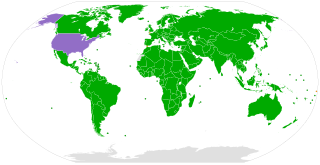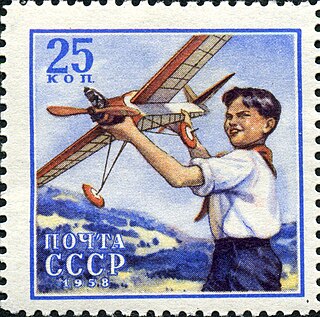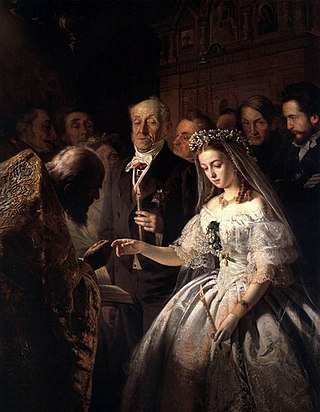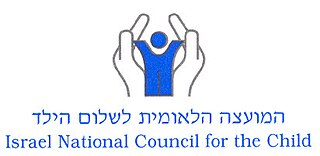Related Research Articles

The age of consent is the age at which a person is considered to be legally competent to consent to sexual acts. Consequently, an adult who engages in sexual activity with a person younger than the age of consent is unable to legally claim that the sexual activity was consensual, and such sexual activity may be considered child sexual abuse or statutory rape. The person below the minimum age is considered the victim, and their sex partner the offender, although some jurisdictions provide exceptions through "Romeo and Juliet laws" if one or both participants are underage and are close in age.

The United Nations Convention on the Rights of the Child is an international human rights treaty which sets out the civil, political, economic, social, health and cultural rights of children. The convention defines a child as any human being under the age of eighteen, unless the age of majority is attained earlier under national legislation.

Children in the military, including state armed forces, non-state armed groups, and other military organizations, may be trained for combat, assigned to support roles, such as cooks, porters/couriers, or messengers, or used for tactical advantage such as for human shields, or for political advantage in propaganda. Children have been recruited for participation in military operations and campaigns throughout history and in many cultures.

Sexual slavery and sexual exploitation is an attachment of any ownership right over one or more people with the intent of coercing or otherwise forcing them to engage in sexual activities. This includes forced labor that results in sexual activity, forced marriage and sex trafficking, such as the sexual trafficking of children.

Children's Day is a commemorative date celebrated annually in honour of children, whose date of observance varies by country. In 1925, International Children's Day was first proclaimed in Geneva during the World Conference on Child Welfare. Since 1950, it is celebrated on 1 June in many countries, which follow the suggestion from Women's International Democratic Federation. World Children's Day is celebrated on 20 November to commemorate the Declaration of the Rights of the Child by the UN General Assembly on 20 November 1959. In some countries, it is Children's Week and not Children's Day.

Child prostitution is prostitution involving a child, and it is a form of commercial sexual exploitation of children. The term normally refers to prostitution of a minor, or person under the legal age of consent. In most jurisdictions, child prostitution is illegal as part of general prohibition on prostitution.

Trafficking of children is a form of human trafficking and is defined by the United Nations as the "recruitment, transportation, harboring, and/or receipt" kidnapping of a child for the purpose of slavery, forced labour, and exploitation. This definition is substantially wider than the same document's definition of "trafficking in persons". Children may also be trafficked for adoption. Not all adoption is a form of human trafficking, but illegal or informal is. Illegal adoptions violate multiple child rights norms and principles, including the best interests of the child, the principle of subsidiarity and the prohibition of improper financial gain.

Sex trafficking is human trafficking for the purpose of sexual exploitation. It has been called a form of modern slavery because of the way victims are forced into sexual acts non-consensually, in a form of sexual slavery. Perpetrators of the crime are called sex traffickers or pimps—people who manipulate victims to engage in various forms of commercial sex with paying customers. Sex traffickers use force, fraud, and coercion as they recruit, transport, and provide their victims as prostitutes. Sometimes victims are brought into a situation of dependency on their trafficker(s), financially or emotionally. Every aspect of sex trafficking is considered a crime, from acquisition to transportation and exploitation of victims. This includes any sexual exploitation of adults or minors, including child sex tourism (CST) and domestic minor sex trafficking (DMST).

Forced marriage is a marriage in which one or more of the parties is married without their consent or against their will. A marriage can also become a forced marriage even if both parties enter with full consent if one or both are later forced to stay in the marriage against their will.
Child protection is the safeguarding of children from violence, exploitation, abuse, and neglect. It involves identifying signs of potential harm. This includes responding to allegations or suspicions of abuse, providing support and services to protect children, and holding those who have harmed them accountable.
Forced prostitution, also known as involuntary prostitution or compulsory prostitution, is prostitution or sexual slavery that takes place as a result of coercion by a third party. The terms "forced prostitution" or "enforced prostitution" appear in international and humanitarian conventions, such as the Rome Statute of the International Criminal Court, but have been inconsistently applied. "Forced prostitution" refers to conditions of control over a person who is coerced by another to engage in sexual activity.

Human rights in Somalia throughout the late 20th-century and early 21st-century were considered dire, but have gradually improved over the following years. Human rights are guaranteed in the Federal Constitution, which was adopted in August 2012. They fall under the Ministry of Human Rights established in August 2013. The central authorities concurrently inaugurated a National Human Rights Day, endorsed an official Human Rights Roadmap, and completed Somalia's first National Gender Policy.

Kailash Satyarthi is an Indian social reformer who campaigned against child labor in India and advocated the universal right to education.

Domestic violence is violence or other abuse that occurs in a domestic setting, such as in a marriage or cohabitation. Domestic violence is often used as a synonym for intimate partner violence, which is committed by one of the people in an intimate relationship against the other person, and can take place in relationships or between former spouses or partners. In its broadest sense, domestic violence also involves violence against children, parents, or the elderly. It can assume multiple forms, including physical, verbal, emotional, economic, religious, reproductive, financial abuse, or sexual abuse, or combinations of these. It can range from subtle, coercive forms to marital rape and other violent physical abuse, such as choking, beating, female genital mutilation, and acid throwing that may result in disfigurement or death, and includes the use of technology to harass, control, monitor, stalk or hack. Domestic murder includes stoning, bride burning, honor killing, and dowry death, which sometimes involves non-cohabitating family members. In 2015, the United Kingdom's Home Office widened the definition of domestic violence to include coercive control.

Human trafficking is the trade of humans for the purpose of forced labour, sexual slavery, or commercial sexual exploitation.
UNICEF, originally the United Nations International Children's Emergency Fund, officially United Nations Children's Fund since 1953, is an agency of the United Nations responsible for providing humanitarian and developmental aid to children worldwide. The organization is one of the most widely known and visible social welfare entities globally, operating in 192 countries and territories. UNICEF's activities include providing immunizations and disease prevention, administering treatment for children and mothers with HIV, enhancing childhood and maternal nutrition, improving sanitation, promoting education, and providing emergency relief in response to disasters.

In the United States, human trafficking tends to occur around international travel hubs with large immigrant populations, notably in California, Texas, and Georgia. Those trafficked include young children, teenagers, men, and women; victims can be domestic citizens or foreign nationals.
Child pornography is illegal in most countries, but there is substantial variation in definitions, categories, penalties, and interpretations of laws. Differences include the definition of "child" under the laws, which can vary with the age of sexual consent; the definition of "child pornography" itself, for example on the basis of medium or degree of reality; and which actions are criminal. Laws surrounding fictional child pornography are a major source of variation between jurisdictions; some maintain distinctions in legality between real and fictive pornography depicting minors, while others regulate fictive material under general laws against child pornography.
The term international child abduction is generally synonymous with international parental kidnapping,child snatching, and child stealing.

The Israel National Council for the Child in Jerusalem, Israel, is an Israeli independent non-profit non-governmental organization that advocates for children's rights and well-being. The organization serves all religions, ethnicities, and income levels in Israel.
References
- ↑ הלאומית לשלום הילד [ permanent dead link ] Retrieved October 13, 2014.
- ↑ Israel National Council for the Child. Archived 2013-01-21 at the Wayback Machine Retrieved October 13, 2014.
- ↑ International Children's Rights Monitor. Defense for Children International. 1992. Retrieved October 11, 2014.
- ↑ Jonathan Lis (October 26, 2010). "Bill would mandate state compensation for child abuse victims; Money would then be recouped from offender; proponents hope to spare victims the trauma of long legal proceedings". Haaretz. Retrieved October 11, 2014.